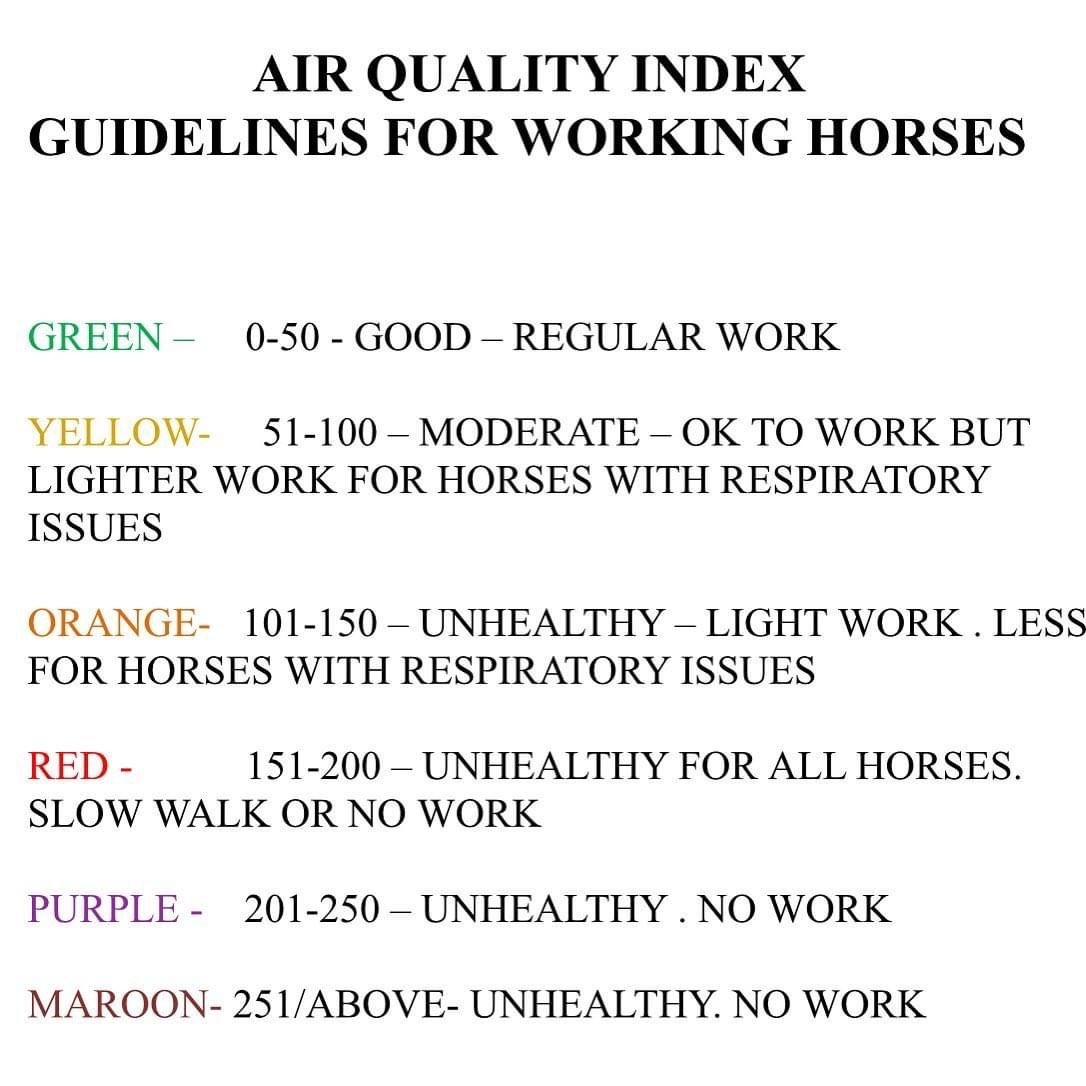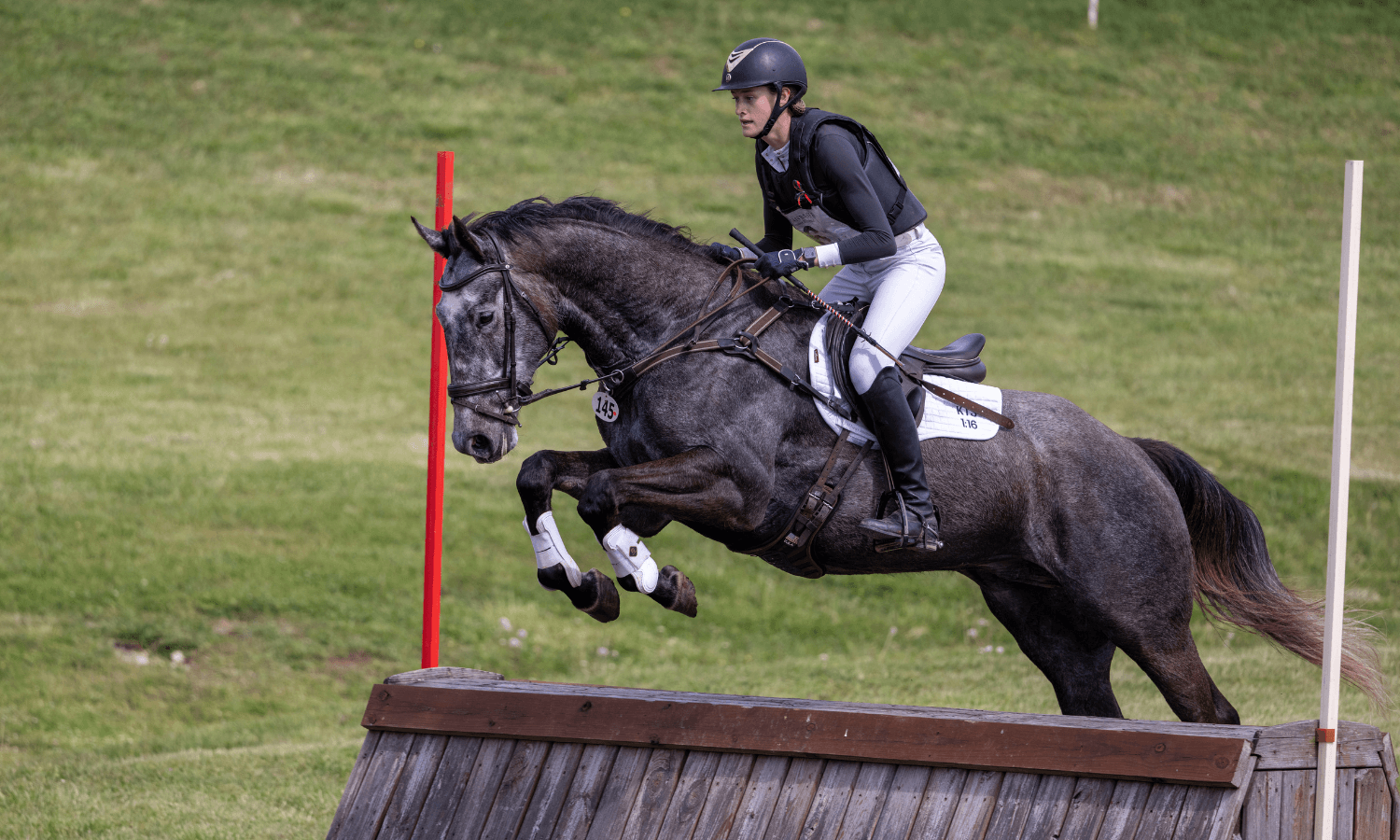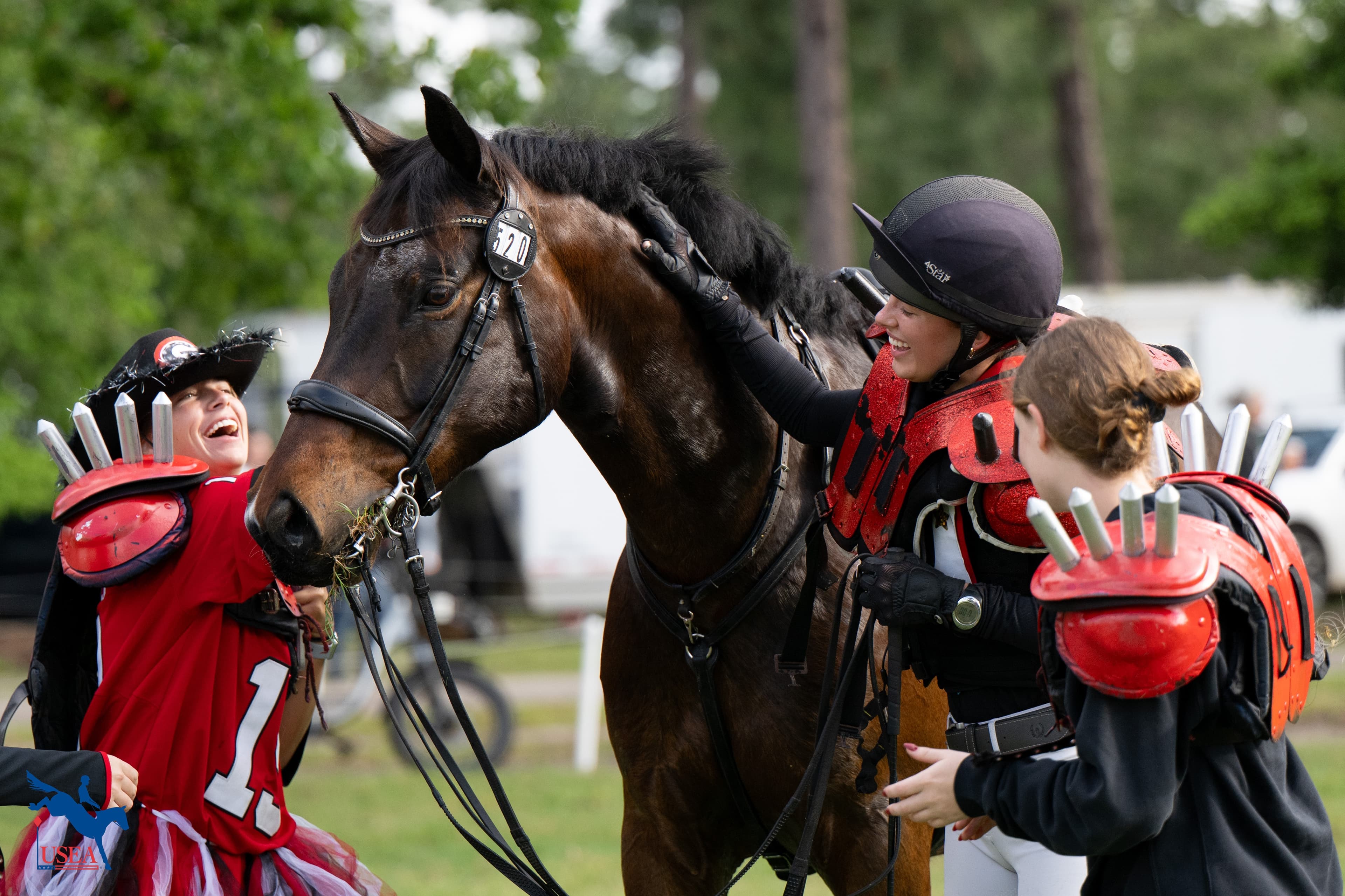Wildfires Create a Fluid Situation for Event Organizers
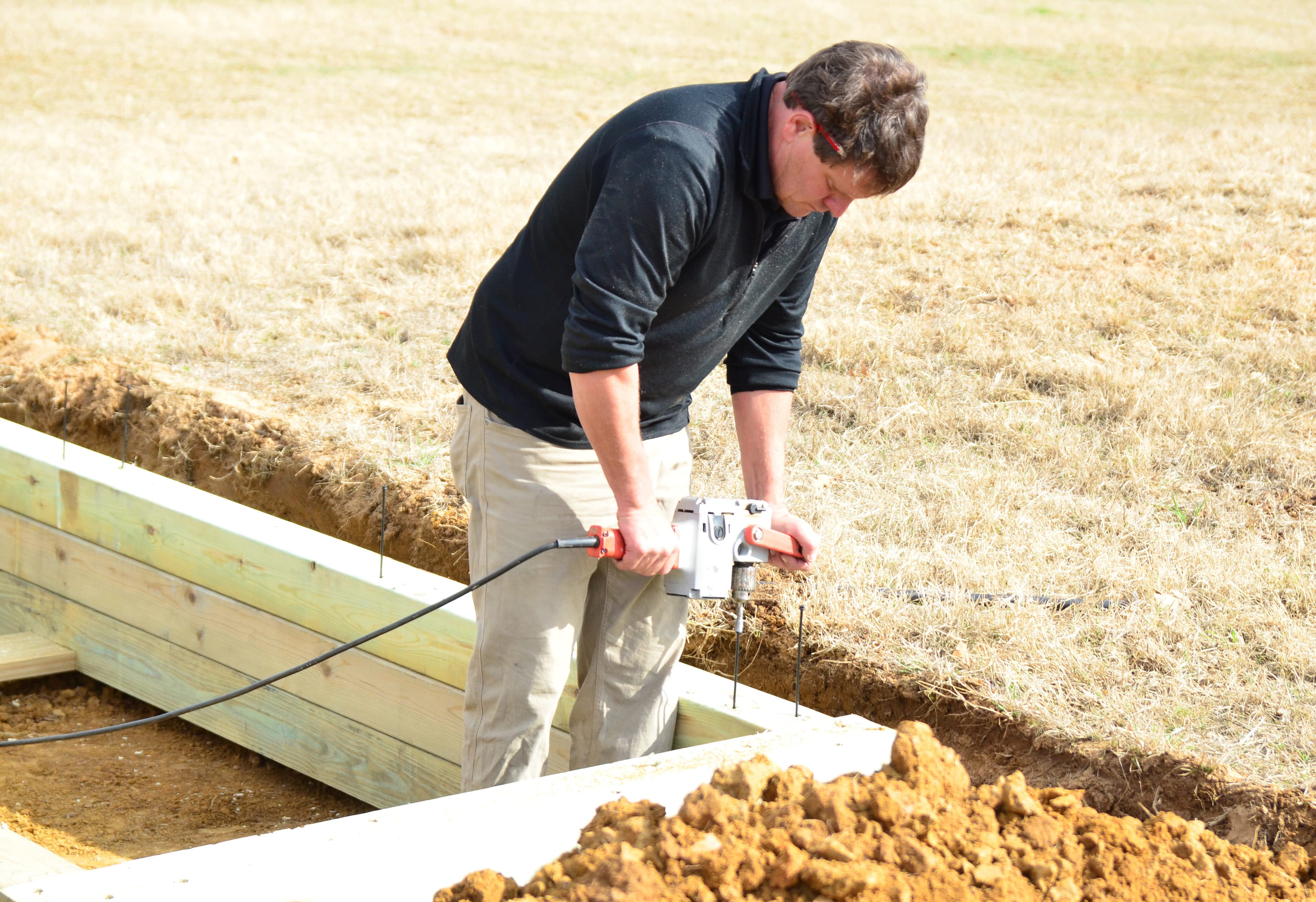
Morgan Rowsell had just wrapped up organizing a successful Essex H.T. in Far Hills, New Jersey, on June 4, but as he turned his attention to his next show two weeks later, he was faced with challenges presented by the effects that wildfires from Canada are now having on equestrian sports in the Northeast.
“The very next day, the smoke came in,” he said. “It looks like a warm, humid, hazy day, but it’s not humid, it’s not warm, it’s actually quite cool. There’s no air. There’s very little breeze. There’s a northeast wind coming out of Canada that is bringing all the Novia Scotia and Quebec smoke to us, and it smells like smoke.”
Fire season in Canada typically begins in May, a little before the United States usually has its fire season. As of Tuesday, the Canadian Interagency Forest Fire Centre (CIFFC) reported more than 400 active fires, with 240 of those considered out of control. Wind carrying smoke across the border into the United States has had severe effects. New York became the most polluted major city in the world on Tuesday, according to the global air quality tracker IQAir.
The fires are impacting equestrian sports. Horse races at Delaware Park, Finger Lakes in New York, Buffalo Raceway in New York, and Penn National in Pennsylvania were cancelled on Wednesday. Horse show organizers are monitoring air quality, consulting experts, and taking precautions that will allow events to take place as safely as possible and in the best interest of horses and riders.
The United States Equestrian Federation (USEF) issued the following statement: “USEF believes the decision by organizers to operate, suspend, or cancel competitions due to compromised air quality is best made by each individual organizer, because venue conditions can vary and can change rapidly depending upon weather, geography, and other factors. In order to make the most informed decision, competition organizers must consult with state and local health authorities and government agencies and should frequently review the Environmental Protection Agency guidelines involving air quality at AirNow.gov to determine whether or not to operate their events. Additionally, to best protect the health and safety of both equine and human competitors, the USEF strongly recommends that, in situations where the Air Quality Index (AQI) reaches 151 or above, an organizer consider suspending or cancelling competition. In cases of cancellation, organizers must inform competitors about refund or credit policies.”
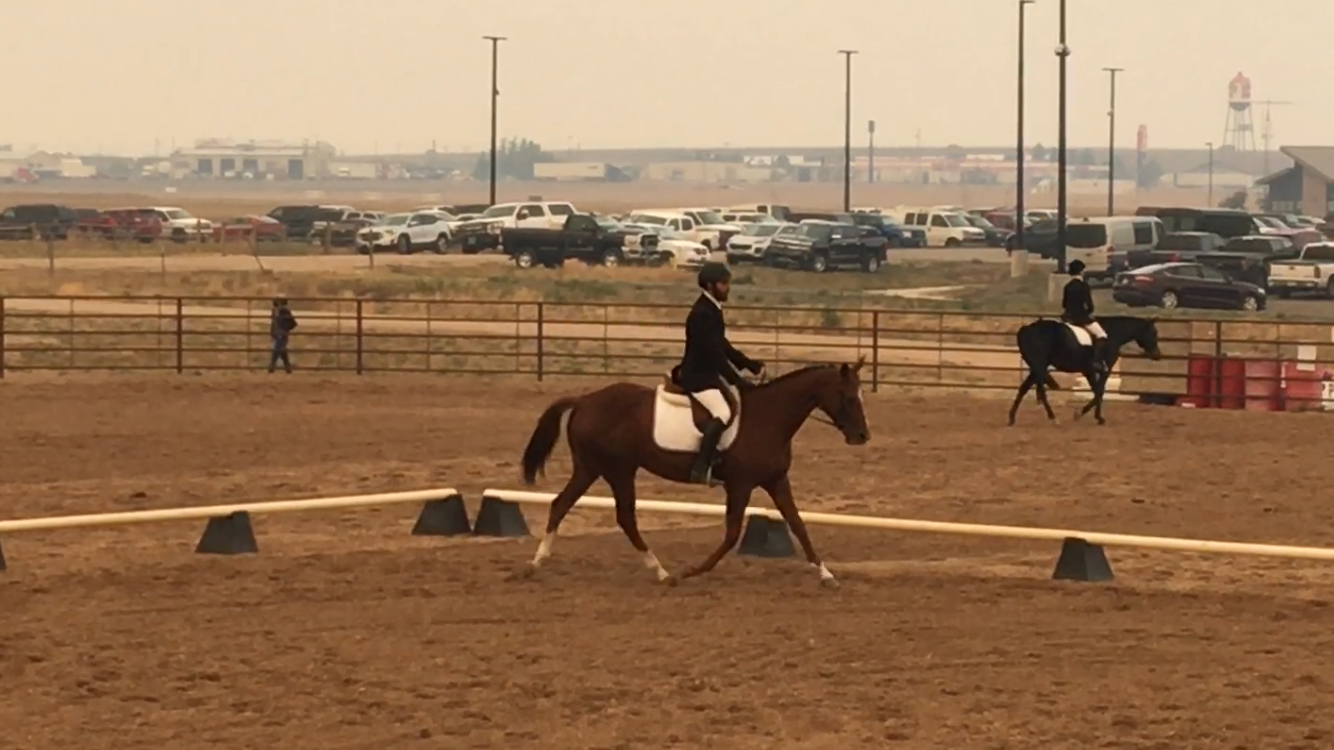
Horse shows have the ability to modify their operations in response to the fluid situation. Rowsell, who is also an FEI Level 3 and USEF “S” course designer, said one option could be to shorten cross-country courses at upcoming events.
Max Corcoran, who is organizing this weekend’s Middleburg H.T. in The Plains, Virginia, said the competition could be adjusted by scaling down from a three-phase to a combined test, or worst-case scenario, canceling the show. Riders and coaches should ultimately consider the impact for their horses individually.
“I would lighten the load and make everything a little easier and whoever wants to run can run,” Rowsell said.
Other possible precautions include having fans in the stable area to keep air moving. The most important consideration is creating a clear line of communication with riders with the goal of “having everybody be on point to take this seriously” and “erring on the side of caution,” Rowsell said.
There are seven USEA-recognized events scheduled this weekend, and the uncertainty has created a moving target.
“At the moment, until someone tells me not to, we’ll do everything we can to run,” Corcoran said. “The thing is, too, everyday it looks a bit different. Everyday there’s a different forecast, so I think that’s also a big part of it, too, that it’s day-to-day.”
Internationally, while Quebec, Canada, has been an epicenter for fires, the prestigious MARS Bromont CCI Three-Day Event has caught a break in the airflow that U.S. events will hope to experience by the weekend.
“We’re good here—obviously monitoring it all very closely but at the moment it’s overcast, raining, cold, and just gray,” Michelle Dunn, the press officer for Bromont, said.
When it comes to care that owners and trainers can provide their horses at home when air quality is compromised, the following is taken from a USEA article written in October 2020 titled “Air Quality and Horse Care During Wildfires with Flying Tail Farms”:
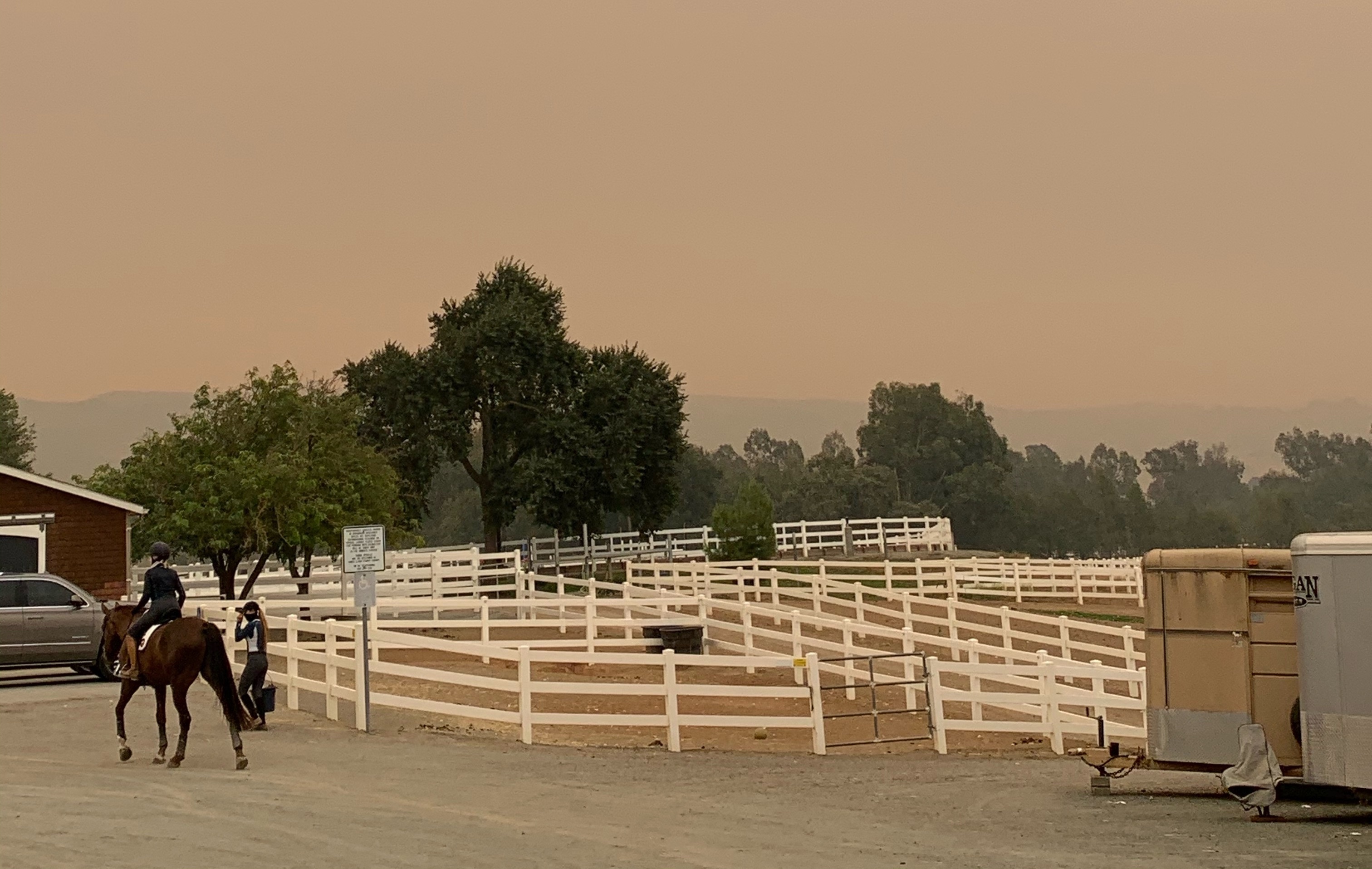
The study from UC Davis provides guidelines for horses exposed to wildfire smoke. The guidelines state that, “The effects of smoke on horses are similar to effects on humans: irritation of the eyes and respiratory tract, aggravation of conditions like heaves (recurrent airway obstruction), and reduced lung function. High concentrations of particulates can cause persistent cough, increased nasal discharge, wheezing, and increased physical effort in breathing.” In addition, the equine specialists at UC Davis, Drs. Joie Watson and Gary Magdesian, created a guide for horse owners to determine potential smoke inhalation damage.
For protecting horses from the poor air quality, the guidelines also emphasize to "limit exercise when smoke is visible. Don’t have your horse do activities that increase the airflow in and out of the lungs. This can trigger bronchoconstriction (narrowing of the small airways in the lungs). Provide plenty of fresh water close to where your horse eats. Horses drink most of their water within two hours of eating hay, so having water close to the feeder increases water consumption. Water keeps the airways moist and facilitates clearance of inhaled particulate matter. Dr. Kent Pinkerton recommends that horses return to exercise no sooner than two weeks post-smoke-inhalation, following the clearance of the atmosphere of all smoke. Horses, like all other mammals, tend to have an irritation to particles, but will recover from the effects within a few days.”
